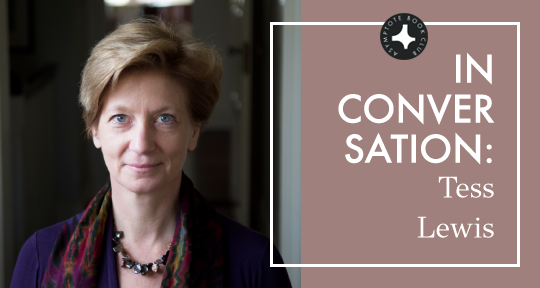Award-winning translator Tess Lewis was first drawn to the Swiss author Monique Schwitter by two “quirky and rather dark” short story collections. Schwitter’s first full novel, One Another, is now an Asymptote Book Club selection, and Tess Lewis tells Asymptote Assistant Editor Chris Power why she couldn’t wait for a chance to translate it to English.
In the latest edition of our monthly Book Club interview series, we also discover the roles Rachel Cusk and Jenny Offill played (indirectly!) in translating One Another and learn why a particular type of coffee nearly led to the English edition of the book being published with extensive endnotes.
Chris Power (CP): How did you end up translating One Another?
Tess Lewis (TL): Monique’s quirky and rather dark short stories in Goldfish Memory and If it Snows at the Crocodile Pen won me over when I read them years ago. So when I had the opportunity in 2014 and ’15 to curate Festival Neue Literatur, the New York City literary festival that showcases fiction from Austria, Germany, and Switzerland, she was at the top of my list of writers. In 2015, the Festival’s theme was “Love and Money,” and because so many of her stories are about the different forms intimacy can take, about connections made and abysses that open up between friends, lovers, family members, and even strangers, she was a perfect fit for the “love” side. In fact, her participation in the festival was a great preview of how deftly she plays with readers’ expectations on a topic as well-trodden as love, sometimes meeting these expectations, sometimes subverting them, and sometimes going off on a tangent.
I couldn’t wait for her to finish her first novel—which turned out to be One Another—and am delighted that I was able to translate it.


